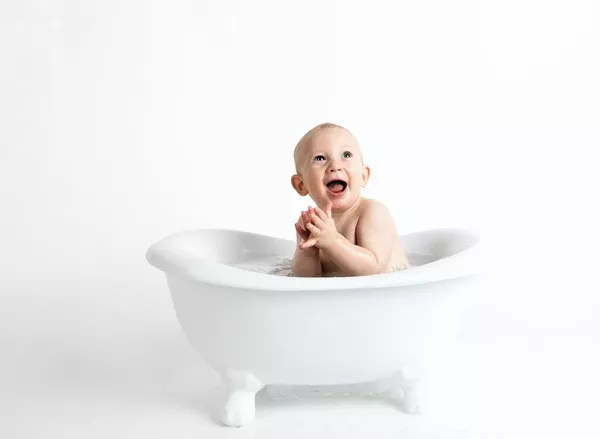As your little one reaches the two-month milestone, you may be curious about the developmental skills they should be demonstrating at this age. Each baby develops at their own pace, but there are some general milestones that can help guide you through this exciting journey. In this article, we will explore the key developmental skills a 2-month-old baby should typically exhibit. Let’s delve into the wonderful world of early childhood development!
Gross Motor Skills
At two months old, babies are gradually gaining control over their muscles, leading to the development of essential gross motor skills. These skills involve the movement of the larger muscle groups, such as the arms, legs, and head, and are essential for achieving physical milestones in the future.
Head Control: By this age, your baby’s neck muscles have become stronger, allowing them to briefly lift and hold their head upright when placed on their tummy. This newfound head control is crucial as it lays the foundation for later activities, like rolling over and sitting up unassisted.
Leg Movement: As your baby lies on their back, you may notice them kicking their legs enthusiastically. This leg movement not only signals their excitement but also helps in strengthening their leg muscles, an important step towards crawling and eventually walking.
Arm Movement: Your little one will start to discover their hands and their ability to control them. They may swat at nearby objects, attempting to reach out and touch them. This newfound hand-eye coordination is a delightful milestone as it showcases their growing awareness of the world around them.
Social and Emotional Development
Though still in the early stages, babies begin to display social and emotional responses at two months. These early interactions are the foundation for forming secure attachments and relationships with caregivers and others.
Smiling: At this age, your baby should respond to social interactions with heartwarming smiles. Smiling is an essential means of communication for infants, and when they smile back at you, it signifies their happiness and contentment in your presence.
Cooing: Listen closely, and you’ll be rewarded with the sweet sound of cooing! At two months old, babies begin to make cooing sounds, experimenting with their vocal cords. These sounds are not just adorable; they are also a way for your baby to communicate and bond with you, forming a strong emotional connection.
Eye Contact: You’ll notice your baby engaging in meaningful eye contact during interactions. They may follow your face with their gaze, focusing on your eyes. This eye contact is an essential part of early communication and signifies their growing interest in the world and the people around them.
Cognitive Skills
While their cognitive abilities are limited at this age, you can still observe some fascinating milestones that showcase their early cognitive development.
Tracking Objects: Watch as your baby’s eyes follow the movement of objects. At two months old, they can track objects with their eyes as they move across their field of vision. This skill is an important precursor to developing visual perception and coordination.
Recognizing Familiar Faces: Your baby may start to recognize familiar faces, such as yours or other primary caregivers. They may respond differently to these familiar faces, displaying signs of comfort and security in their presence.
Exploring Hands and Objects: At this age, your baby’s hands are their favorite toys! They will begin to explore their own hands, bringing them together and even attempting to put them in their mouth. Additionally, they will start to grasp and hold onto objects, a crucial step in their sensory development and fine motor skill acquisition.
Communication and Language
Communication development is a vital aspect of a baby’s growth, and by two months, they start showing early signs of language development that lay the groundwork for future language skills.
Cooing and Babbling: Besides cooing, your baby may start to babble and experiment with different sounds. While these sounds may not have specific meanings yet, they are an exciting step towards the development of speech and language.
Responding to Voices: Your baby’s sense of hearing is becoming more acute. They will turn their head or eyes towards the source of sounds, displaying heightened responsiveness to voices and environmental noises.
Different Cries: By now, you may have noticed that your baby’s cries vary depending on their needs. They develop distinct cries for various needs, such as hunger, discomfort, or tiredness. As a parent, understanding and responding to these different cries are vital for meeting your baby’s needs and ensuring their well-being.
Conclusion
In conclusion, a 2-month-old baby experiences rapid growth and development in various areas, including gross motor skills, social and emotional milestones, cognitive abilities, and early language skills. During this precious time, engaging in stimulating activities, providing a nurturing environment, and offering plenty of love and attention can support your baby’s development. Cherish these early moments, as they lay the foundation for a lifetime of learning and growth.


